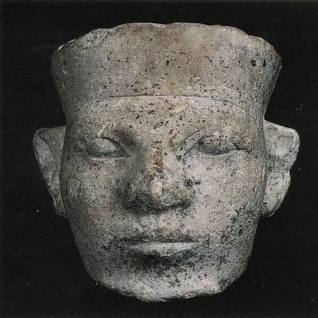
Ndlovu-Gatsheni writes: ‘Wole Soyinka’s widely cited injunction against Négritude, ‘a tiger does not proclaim its tigritude, it pounces’ (Ischinger 1974, 23), suffers miserably from ahistoricity. If the tiger’s essence or being as a tiger was questioned and renamed derogatively as an ant or something similar, it would definitely be forced to proclaim its tigritude (its essence or being) as part of its resistance and defensive self-constitution.’ 1
Soyinka’s famous phrase is widely misunderstood. I am not fussed about the misunderstanding but I am appalled by the fact that another African generation continues that misunderstanding and revels in it. This is such an appalling exhibition of pettiness and lack of respect that it reveals how deeply the next generation has sunk even in its apparent ‘resistance’. This is evidence of a breakdown in African culture. A previous generation would have hesitated.
The correct approach to an earlier generation would have been to seek to reconcile the speech to today’s need but instead, the author seeks to ‘get one up ‘ on Soyinka. Pathetic.
Now lets examine this issue at a technical level.
Our first step is to get the historical context right. At the time of Soyinka’s statement, the French African intellectuals were exhibiting a strange form of African behaviour. They would get up on stage in the best French clothes speaking in the most mellifluous French with wonderful French references talking about the glory of Africa. I recall a speaker from Francophone Africa being invited to address the African students at Cambridge University. He refused to speak in English and brought an interpreter, a white French lady. He would speak for a few lines then stop to allow her to translate. At one point he angrily interjected and corrected her translation revealing that his English was far better than his French interpreter’s. We understood his sub-text to be he had a white person as his assistant endorsing his power and status.
For Cambridge undergraduates in 1975, this was a little pathetic. One of my fellow students got up and asked how his Negritude reconciled with his deep French attitudes and kow-towing to French culture. He began responding that adopting French culture and admiring French ways was not incompatible with Negritude. As a challenge, he then asked why none of the African students present wore African clothes? At that point, the lady interpreter intervened and pointed out that there was in fact one student wearing African clothes pointing towards me. Almost every day of my undergraduate life and later at Cambridge I wore African clothes. I did not boast about being African, I exhibited it in practice.
If anyone (whether Black or white or other) suggested that Africans were not intelligent, or as intelligent as Europeans I would seek an opportunity to publicly trash that person’s work in front of them.2 In one public review after the other often in the national press, I took down those who had suggested anything inferior about Africans but not by directly addressing their insults. If anyone challenged Ali or Tyson at their height by renaming them as pussies, they might have invited them into the boxing ring rather than have a discussion about whether they were pussies.
Ndlovu-Gatsheni wrote: ‘If the tiger’s essence or being as a tiger was questioned and renamed derogatively as an ant or something similar, it would definitely be forced to proclaim its tigritude (its essence or being) as part of its resistance and defensive self-constitution.’ This simply is not true nor is it effective. The effective response to ‘you guys can’t fight’ is to knock the guy down. The effective response to ‘you guys cannot reason ‘ is to demolish one of his key arguments or his/her work on another topic.
Ndlovu-Gatsheni criticises Soyinka but bends the knee to Appiah’s appalling work 3. This reveals his actual lack of resistance and possible fear of criticising someone with a famous title nd apparent academic privilege. My answer to Appiah, as is my answer to anyone suggesting inferiority of Africans, is to demolish their work.4
Discussing whether you are a pussy or not, whether you are rational or can think or not, whether you are civilised or not, whether African women mate with apes or not as Appiah does, is a disastrous move as it legitimates the question. Don’t do it.
Endnotes
1. (NDLOVU-GATSHENI & NDLOVU, 2021, p. 25)
2. (O. A. Ladimeji, 1974b) (O. A. Ladimeji, 1974a) (O. A. Ladimeji, 2021) (D. Ladimeji, 2015)
3. (Appiah, 1992)
4. (D. Ladimeji, 2019c) (D. Ladimeji, 2019b) (D. Ladimeji, 2019a) (D. Ladimeji, 2016)
REFERENCES:
Appiah, K. A. (1992). In My Father’s House. OUP.
Ladimeji, D. (2015). RACISM & HOMOPHOBIA IN GLADWELL’S ‘TIPPING POINT’. African Century Journal, 6.
Ladimeji, D. (2016). Kwame Anthony Appiah- Cosmopolitanism: A Review. African Century. https://www.academia.edu/24571868/Kwame_Anthony_Appiahs_Cosmopolitanism_A_Review
Ladimeji, D. (2019a). A K Appiah and the racism in his work: The endorsement of genocide -Part3. African Century Journal. https://www.academia.edu/39818018/A_K_Appiah_and_the_racism_in_his_work_The_endorsement_of_genocide_Part3
Ladimeji, D. (2019b). Appiah and the Racism in His Work Part 2. African Century Journal. https://www.academia.edu/81479747/Appiah_and_the_Racism_in_His_Work_Part_2
Ladimeji, D. (2019c). Appiah the Racism in His Work Part 1 PDF. African Century Jounal. https://www.academia.edu/77921134/Appiah_the_Racism_in_His_Work_Part_1_PDF
Ladimeji, O. A. (1974a). Flew and the Revival of Social Darwinism. Philosophy, 49(187), 97–101. https://doi.org/10.1017/S0031819100047914
Ladimeji, O. A. (1974b). Science, Racism and Social Darwinism: A Review of Race by JR Baker. Race & Class. https://www.academia.edu/27071070/Science_Racism_and_Social_Darwinism_A_Review_of_Race_by_JR_Baker
Ladimeji, O. A. (2021). Frank Snowden: The Egyptology of Skin Tones. African Century Journal. https://www.academia.edu/67288200/Frank_Snowden_the_Egyptology_of_Skin_Tones
NDLOVU-GATSHENI, S. J., & NDLOVU, P. P. (2021). THE INVENTION OF BLACKNESS ON A WORLD SCALE. In M. STEYN & W. MPOFU (Eds.), Decolonising the Human (pp. 25–45). Wits University Press; JSTOR. https://doi.org/10.18772/22021036512.5

